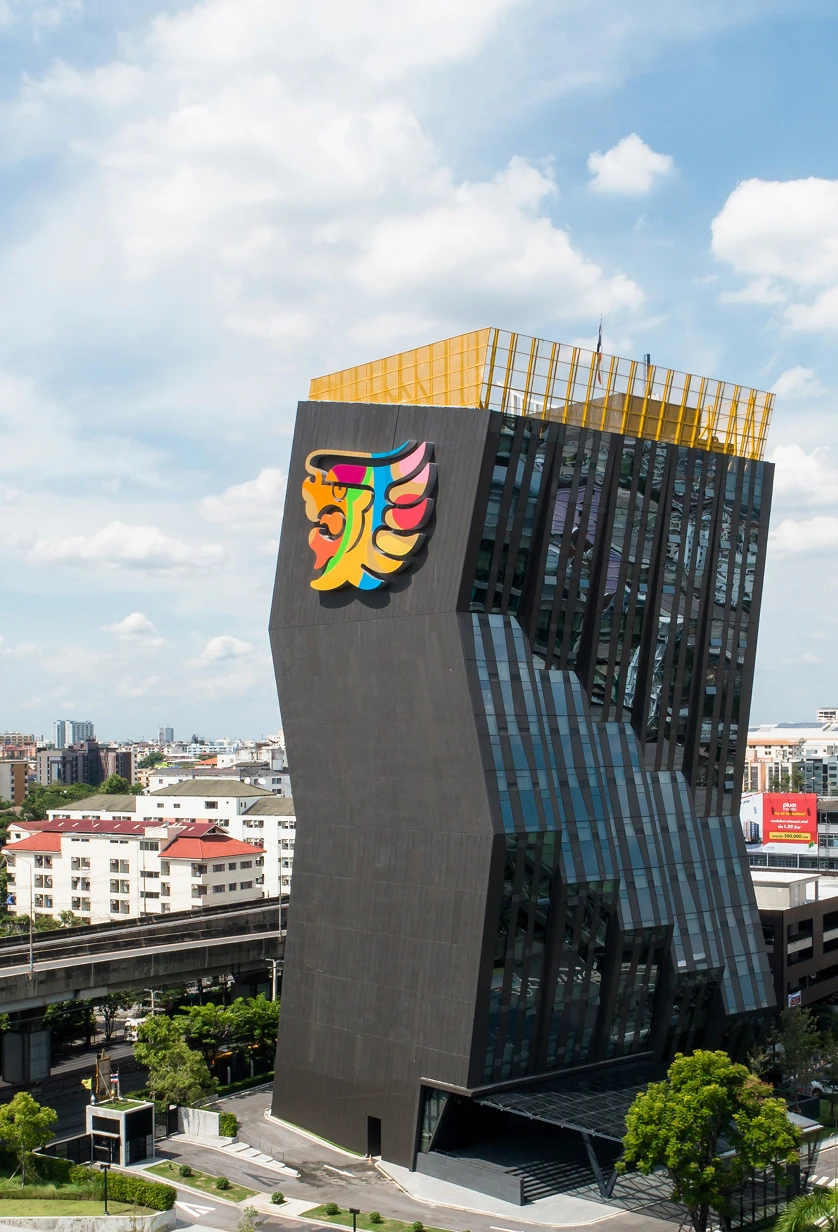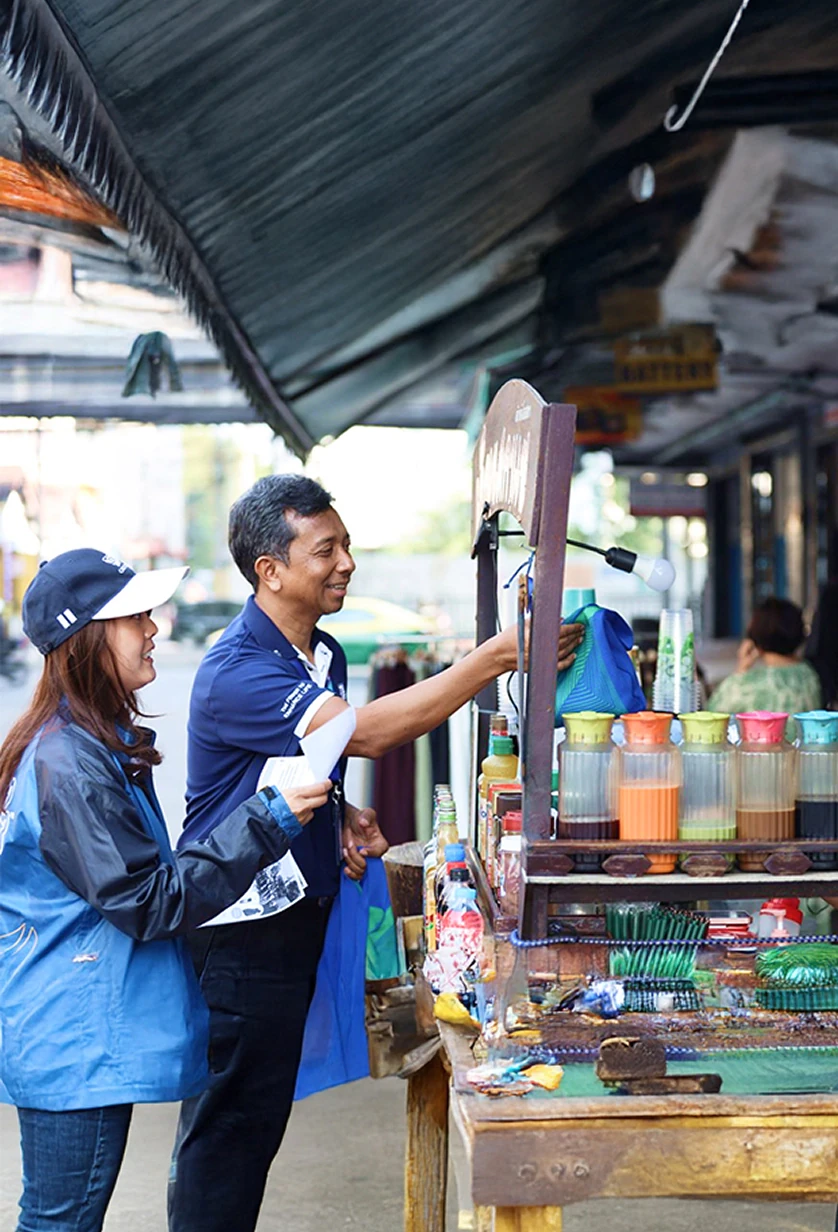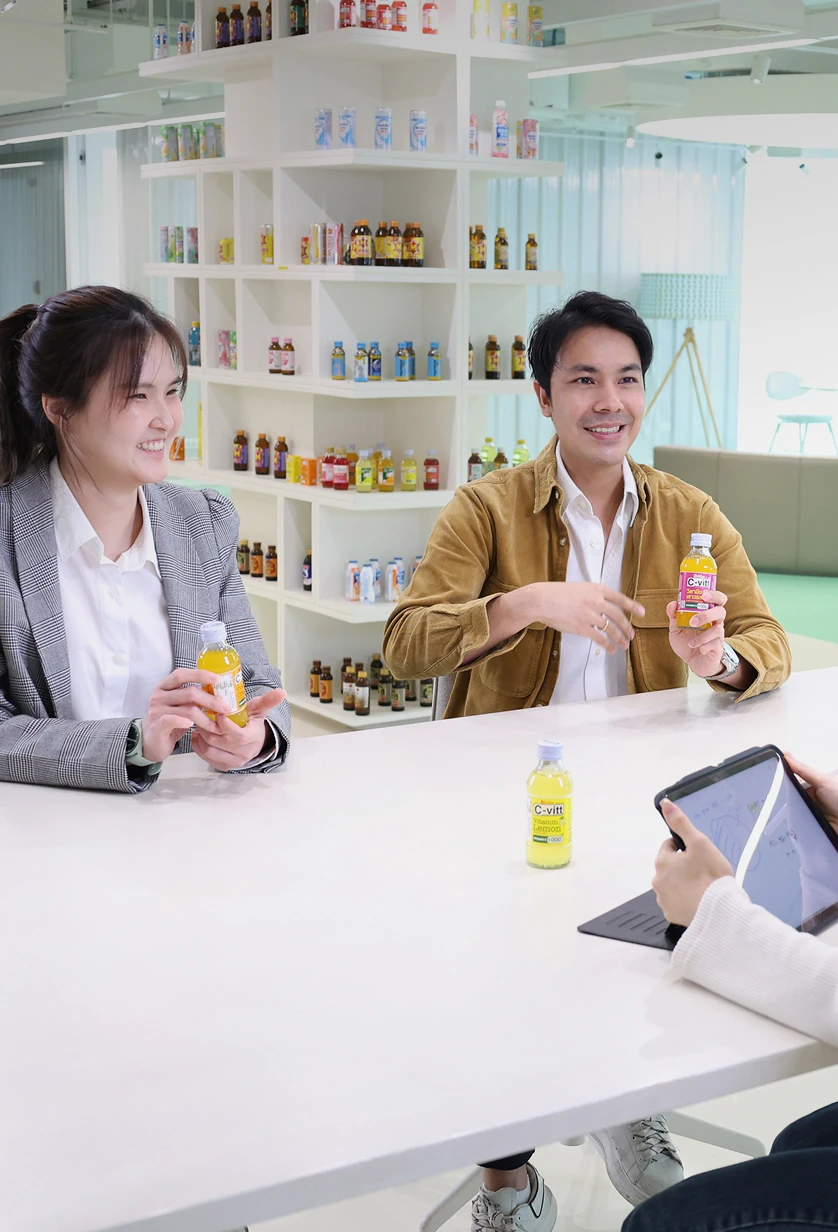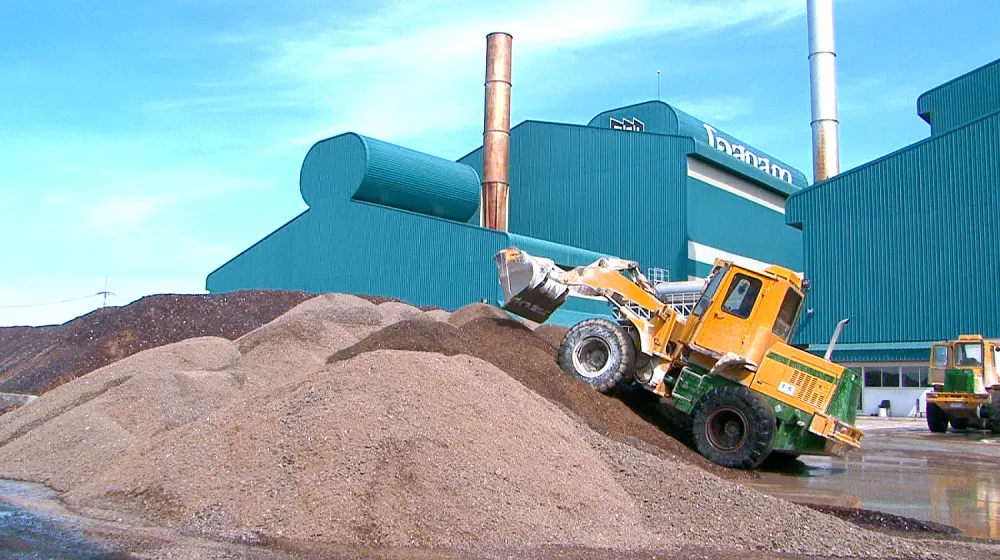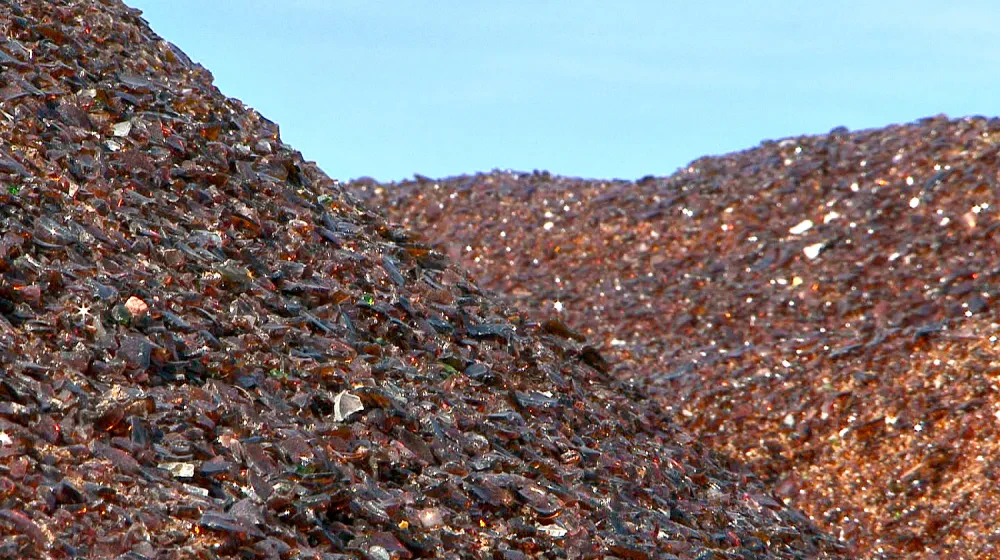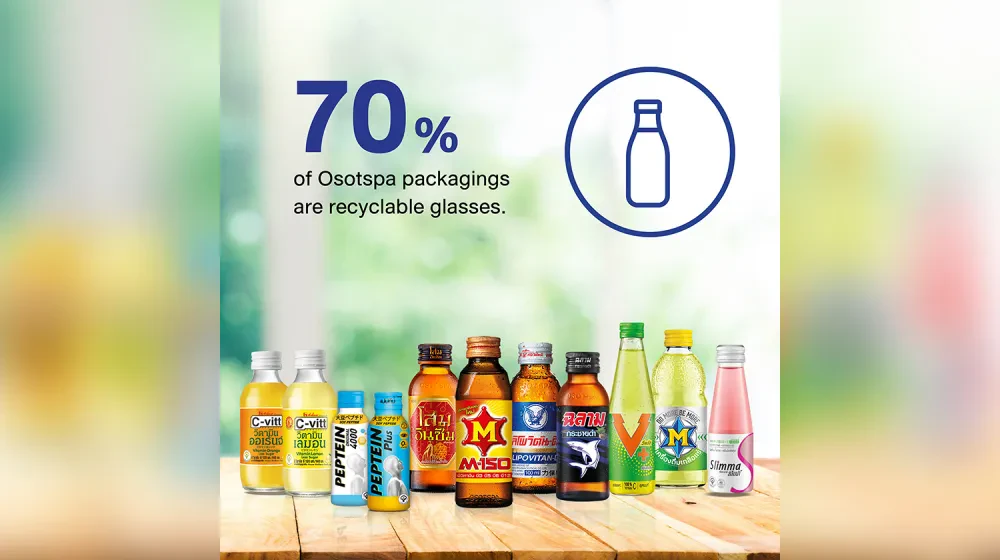Osotspa is committed to managing upstream to downstream packaging, opens a recycling center for used glass bottles from any brand
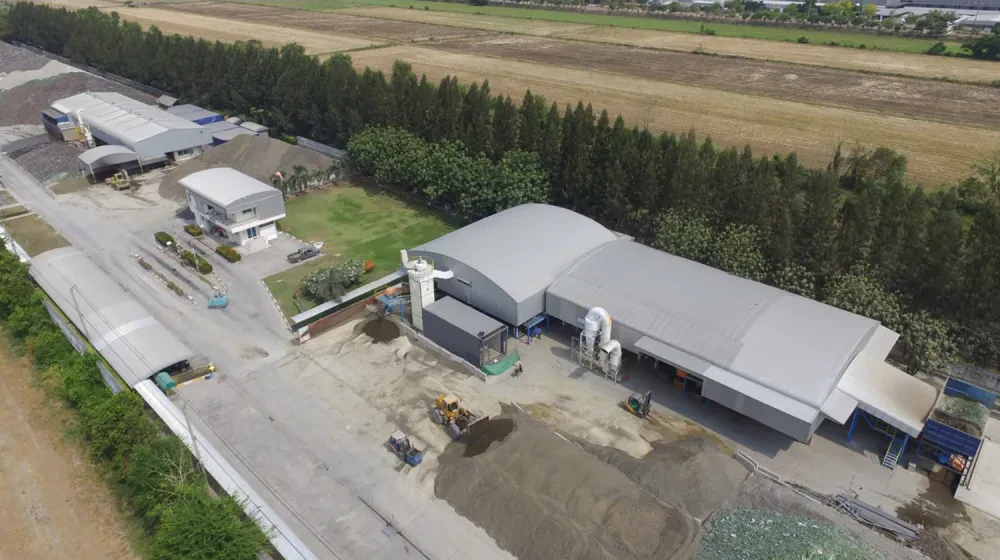
Osotspa, a leading consumer product manufacturer in Thailand, recognizes the important role manufacturers play in helping to reduce the amount of waste generated by society. The company has opened a recycling center in Saraburi province and developed measurements to reduce the environmental impact from used packaging, starting from the production process to reusing packaging waste for new production.
“Osotspa has always been committed to conducting its business in conjunction with preserving the environment from upstream to downstream. In the belief that a good business should not have a negative impact on the environment, communities and society, our company has carried out policies and measurements to supervise production processes ensuring they are environmentally-friendly by focusing on the efficient use of natural resources and reductions in both energy consumption and plastic use in the production process. We also stress waste management in packaging having established a packaging recycling center to reduce waste and encourage the recycling of new products which in turn, contributes to the more cost-effective and sustainable use of resources and improved sustainability in Thailand,” said Mrs. Wannipa Bhakdibutr, President of Osotspa Public Company Limited.
To manage packaging from upstream to downstream, Osotspa focuses on the selection of materials. Currently, over 70% of Osotspa products, especially beverage products, are packed in recyclable glass bottles. For plastic packaging, the company has started using recyclable plastics in its Organik by Babi Mild packaging. Osotspa also promotes the use of refillable products to reduce plastic inputs and use of bottles in the production process.
In addition, the Saraburi recycling center can separate up to 1,000 tons of glass bottles and cans per day. At the recycling center, the packaging waste undergoes a separation process in order to divide each type of waste for recycling. For instance, glass bottles and broken glass are sent as raw materials to produce new bottles. Osotspa’s glass bottle factories use glass cullets as the main raw material for up to 90% of production which reduces energy consumption and natural resources in the process. An increase in the use of glass scraps by 10 percent can reduce energy consumption in the blast furnace by 2.5 percent. The extracted aluminum lid is combined with cans and sent to a factory specializing in recycling aluminum. In addition, the company is undertaking research to utilize liquids that remains in the packaging, such as beverages and cooking sauces, which can be produced into fertilizer for plants.
This recycling center opened in the third quarter and is considered another important milestone in Osotspa’s packaging management which will have the least possible impact on the environment from upstream to downstream. Anyone located in Saraburi or the surrounding areas who is interested in supporting the environment by collecting used glass bottles can deliver them to Osotspa’s recycling center. Please contact the Osotspa Consumer Hotline at 02 351 1111 for more information.


